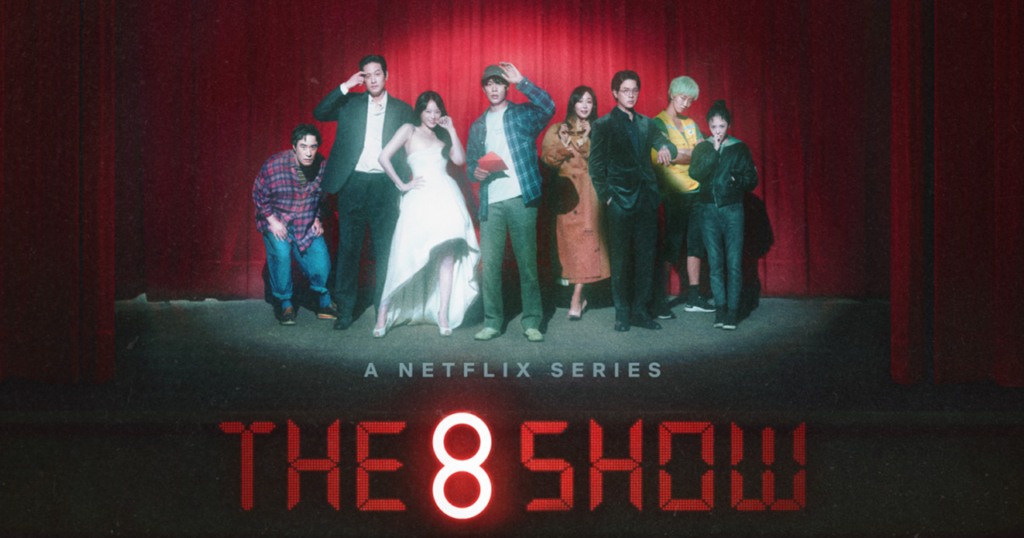After my friend introduced me to the Netflix “The 8 Show” which is a dramatic satire of society not too far fetch from Squid Game, we concluded that in this particular show, a lack of morality offers short-term advantages, but ultimately, only a fairly moral person avoids being overthrown as a leader.
This raised questions about limited resources and morality within a competitive context. Is life a zero-sum game, and if so, is immorality the only path to success?

Introduction
The concept of life being a “zero-sum game” depends on the context in which we consider life. In a zero-sum game, one person’s gain is exactly balanced by another person’s loss, making the net change in wealth, utility, or benefit zero.
Here’s a breakdown of different perspectives on whether life can be considered a zero-sum game:
Economic Perspective
Not Necessarily Zero-Sum: In economics, trade and cooperation can create situations where all parties benefit, a concept known as a positive-sum game. For example, when countries engage in trade, both can gain from the exchange.
Zero-Sum Elements: Certain situations, such as competition for limited resources or market share, can be zero-sum. If one company gains a larger market share, another company loses an equivalent share.
Social and Political Perspective

Not Necessarily Zero-Sum: Social and political advancements can often create benefits for multiple groups. For instance, advancements in technology, education, and healthcare can improve the well-being of entire populations.
Zero-Sum Elements: Power struggles and political conflicts can be zero-sum. If one group gains political power, another may lose it.
Environmental Perspective

Zero-Sum Elements: The competition for limited natural resources can be seen as zero-sum. If one nation or group consumes a larger share of resources, less is available for others.
Not Necessarily Zero-Sum: Sustainable practices and technological innovations can potentially increase the total available resources or make their use more efficient, benefiting multiple parties.
Personal and Psychological Perspective
Not Necessarily Zero-Sum: Personal growth, relationships, and happiness are often not zero-sum. One person’s happiness or success does not necessarily come at the expense of another’s.
Zero-Sum Elements: In some competitive contexts, such as job applications or sports, one person’s win is another’s loss.
Game Theory Perspective

Not Necessarily Zero-Sum: Many real-life interactions are modeled as non-zero-sum games where cooperation can lead to mutually beneficial outcomes.
Examples include the Prisoner’s Dilemma and the Iterated Prisoner’s Dilemma, which demonstrate that cooperation can yield better outcomes for all players over time.
Zero-Sum Elements: The rules of the game dictate its nature. If you’re playing a game, for example, where there can only be one winner, then the game is zero-sum. In reality, we’re talking more about a series of matches where the need for a win-loss ratio of 70 to 30% is necessary for the continuation of the games.
Our take

If life were inherently a zero-sum game, it would explain why countries must constantly be in conflict, and why citizens might also find themselves in perpetual competition, which seems to be the case.
However, the perception of finite resources is often a result of a lack of creativity and innovation. In our view, there will always be a path to a better solution that benefits all parties involved.

The main obstacles to finding such solutions are often greed and selfishness, highlighting the importance of morality when engaging in interactions involving multiple stakeholders, perhaps even an external referee is needed to ensure that these fundamental rules, which benefit the group as a whole, are always upheld.
Conclusion
In conclusion, while certain aspects of life can exhibit zero-sum characteristics, many areas allow for positive-sum outcomes where cooperation, innovation, and mutual benefit play crucial roles.
Thus, life is not inherently a zero-sum game, though specific situations may have zero-sum elements. The key aspect of this theory is that prioritizing the group is essential for optimizing the system, which requires continuous oversight of the interactions among parties.

In theory, life can be a non-zero-sum game. However, external pressures can sometimes force people to act as if it were a zero-sum game, leaving others with no choice but to follow this path to survive.
- An even more intriguing question might be: how should one behave in such a situation?
- What is the role of morality in modern society?
Information
Our video production : https://www.neonnight.fr/en/


GIPHY App Key not set. Please check settings